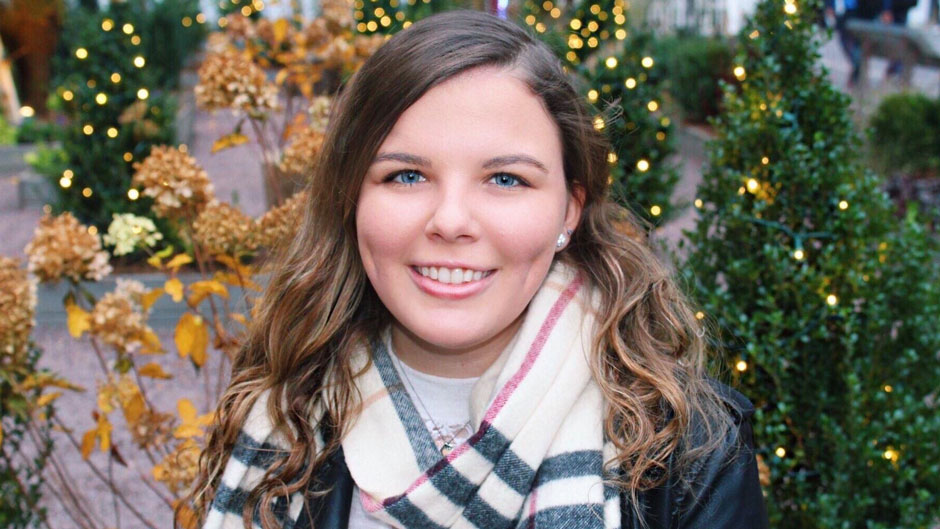For Bonnie Stright there is nothing more fulfilling than watching a child reach their full potential.
That’s why Stright—who recently finished her studies at the University of Miami School of Education and Human Development and has earned a Bachelor of Science in Elementary and Special Education and a Bachelor of Arts in Psychology—has devoted much of her undergraduate time to students.
She grew up in Berwyn, Pennsylvania, a suburb outside of Philadelphia, so she wanted to try something new for college.
“I wanted to go somewhere really diverse,” she said. “I really love UM because it is next to a big city, but we have such a nice campus. We have a campus bubble; so, it is the best of both worlds.”
At first, she did not know what to study, but when she took Teaching 101, she was hooked.
“I always wanted to work with children,” she said. “It is the most influential thing in the world. Besides their parents and caretakers, teachers are the ones who are most influential since we spend so much time with them. Besides teaching them, we guide them through life.”
Want to recognize a graduating student from the University of Miami? Congratulate, encourage and honor this year's class. Submit your shout-out by May 8.
Although she participated in Student Government and the Future Educators Association, Stright said that her favorite times during her college years included working as a summer counselor at Camp Kesem, an organization that helps children affected by cancer, and when she was a student teacher at Tropical Elementary School in Miami-Dade County.
At Camp Kesem, she was a counselor for several summers, providing activities and support for young children whose family members had been affected by cancer. She also did outreach work and raised funds for the organization.
“We are not a grief camp,” she said. “We are there to support and provide a place of fun for the kids.”
She chose to do her student teaching at Tropical Elementary, because the student population of the school included many students for whom English was a second language. Many also were eligible for free lunch.
“I wanted to be in a diverse environment,” she said. “It was tiring, but I had the best time of my life.”
Ana Menda, assistant professor of professional practice at the School of Education and Human Development, was Stright’s teacher for several classes and said the student is a “powerhouse.”
“She was always interested in understanding issues of inequality in schools and trying to support all kinds of learners,” she said. “During her time as president of the Future Educators Association, they had the highest number of members and participation.”
Menda said Stright was a “dedicated scholar” who participated in class and wrote beautifully.
After graduation, Stright will pursue a dual degree master’s program at the University of Pennsylvania in Social Work and Education.

